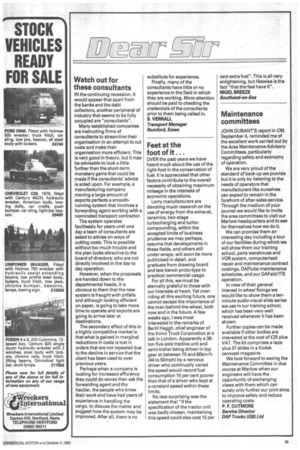Watch out for these consultants
Page 25

If you've noticed an error in this article please click here to report it so we can fix it.
IN the continuing recession, it would appear that apart from the banks and the debt collectors, another peripheral of industry that seems to be fully occupied are "consultants".
Many established companies are instructing firms of consultants to streamline their organisation in an attempt to cut costs and make their organisation more efficient. This is very good in theory, but it may be advisable to look a little further than the short-term monetary gains that could be made if the consultants' advice is acted upon. For example, a manufacturing company moving a large amount of exports perfects a smoothrunning system that involves a forwarding agent working with a nominated transport contractor.
The system operates faultlessly for years until one day a team of consultants are asked to advise on ways of cutting costs. This is possible without too much trouble and the plan looks attractive to the board of directors, who are not directly involved in the day to day operation.
However, when the proposals are handed down to the departmental heads, it is obvious to them that the new system is fraught with pitfalls and although looking efficient on paper, is going to take more time to operate and exports are going to arrive later at destinations.
The secondary effect of this in a highly competitive market is that what is gained in marginal reductions in costs is lost in orders that are not repeated due to the decline in service that the client has been used to over previous years.
Perhaps when a company is looking for increased efficiency they could do worse than ask the forwarding agent and the haulier, the people who know their work and have had years of experience in handling the cargo, to discuss the matter and suggest how the system may be improved. After all, there is no substitute for experience.
Finally, many of the consultants have little or no experience in the field in which they are working. More attention should be paid to checking the credentials of the consultants prior to them being called in. S. VERRALL Transport Manager Rem ford, Essex












































